FAA 2010 Interview: Translating the Tradition
$4.99
In this interview by Brian Clark, Dr. Dykes explains a bit about his background, what is important about traditional astrology, and its future. Length 38:10, 17MB. $4.99
You may also like…
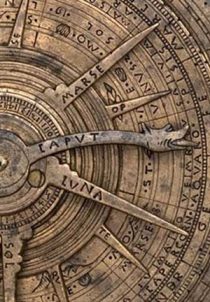
Workshop: Elements of Solar Revolutions
This 2.5-hour workshop shows in great detail how to understand and combine several traditional techniques for analyzing a native's chart from year to year, using solar revolutions (solar returns), profections, and the direction of the Ascendant of the solar revolution. Length 2:34:55, 71MB.
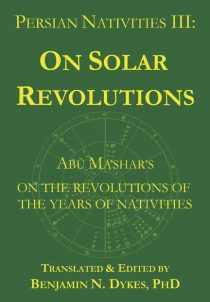
Persian Nativities III: On Solar Revolutions
This third volume of the Persian Nativities series is a translation of the surviving Latin version of Abu Ma’shar’s On the Revolutions of the Years of Nativities. It covers all of the primary predictive techniques: profections, solar revolutions, distributions, transits, and firdaria.
Related Products
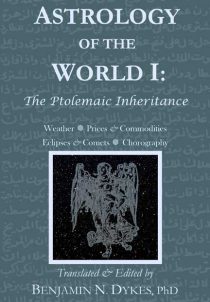
Astrology of the World I: The Ptolemaic Inheritance
Astrology of the World I: The Ptolemaic Inheritance presents numerous selections by Arabic and Latin authors on areas of mundane astrology inspired by Ptolemy’s Tetrabiblos. Many texts have been translated directly from Arabic by Benjamin Dykes. Authors include al-Kindi, ‘Umar al-Tabari, al-Rijal, Masha’allah, Abu Ma’shar, ibn Labban, Dorotheus, and ibn Ezra.
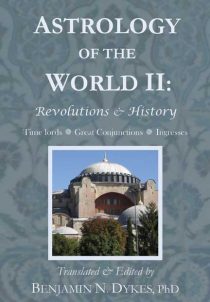
Astrology of the World II: Revolutions & History
Ingresses and conjunctional theory from the Persians
Astrology of the World II: Revolutions & History is the second in a trilogy of writings from medieval astrologers, focusing on astrological theories of history, mundane time lords and predictive techniques, Saturn-Jupiter conjunctions, and annual ingresses. Many texts have been translated directly from Arabic, and authors include Masha’allah, Abu Ma’shar, Sahl, ‘Umar al-Tabari and Kankah, al-Qabisi, and al-Rijal (Haly Abenragel).
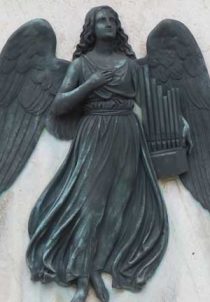
Victors, Almutens, and the Holy Guardian Angel
This audio download explains the concept of victors or “almutens” in traditional astrology: how to calculate and understand several types, and how to use Renaissance methods to determine the planetary category and name of one’s personal Angel or Higher Genius. See longer description below. Contains: MP3 and slides. (Length: 2:53:00, 83MB.)
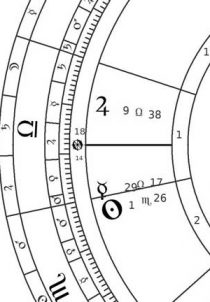
Workshop: Distributions Through the Bounds
This special, hands-on workshop will teach you how to use “distributions,” an ancient and powerful predictive technique, in both natal and solar return charts. Length 3:03:00, 84MB.
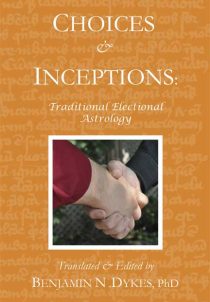
Choices & Inceptions: Traditional Electional Astrology
Medieval electional astrology in the tradition of Dorotheus
Choices & Inceptions presents numerous works on choosing auspicious times for actions, drawn from the most well-known medieval Persian and Arabic-language authors and compilers: al-Kindi, Sahl bin Bishr, Bethen, al-‘Imrani (Haly Embrany), and al-Rijal (Haly Abenragel). It is the largest collection of traditional electional texts available in modern languages.
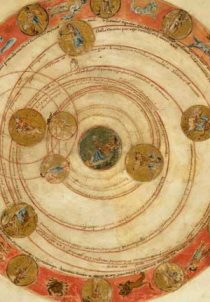
Introduction to Traditional Mundane Part 1
This presentation introduces traditional mundane astrology, beginning with Ptolemy’s method for interpreting and timing eclipses, prices and weather, and historical astrology: framing history into larger and smaller periods, especially using Saturn-Jupiter conjunctions. Length 1:16:09, 36MB.
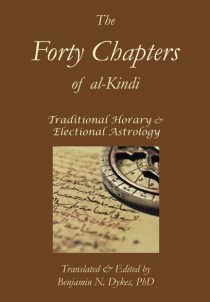
The Forty Chapters of al-Kindi
The famous, “first” Arab philosopher, al-Kindi (ca. 801-870 AD) wrote many instructional letters and works on astrology and the universe. The Forty Chapters is on horary and electional astrology: answering questions and choosing auspicious times to act. It is the second volume in the horary trilogy, preceded by The Search of the Heart and followed by The Book of the Nine Judges.
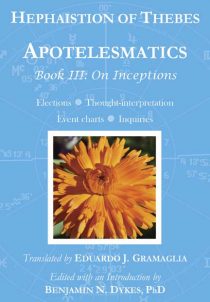
Apotelesmatics Book III: On Inceptions
Hephaistion of Thebes’ Apotelesmatics (5th Century AD) is an important record of ancient doctrines on general principles, natal, and electional astrology, largely drawn from the work of Ptolemy and Dorotheus.
